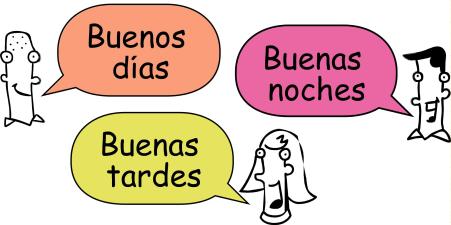Winter is coming! Treat yourself to a special gift for the new year.

My belief is that to speak a foreign language is a gift.
It allows us to explore new worlds and opens up new work opportunities. I also believe that it is never too late to start learning a language or to pick up from where you left off. Why not take this opportunity to treat yourself to a free consultation and sample lesson with no obligations.
I offer a free 45 minute consultation session which includes:
- a comprehensive assessment of your individual needs;
- drafting a personalised learning plan; and
- an online class taster.
My online classes are tailored to meet each student’s specific requirements and interests. They are designed to motivate and engage students using the latest materials and interactive techniques.
I focus on and apply the principles of the communicative method, teaching in context, whilst maximizing the use of time to make the learning experience pleasurable and rewarding.
Why is it important to learn in context?
Because by simulating real situations through games, conversation, role play, videos, audios, exercises and written work, the connections begin to embed themselves. The strands begin to link up and you will learn quickly and will remember what you have learned.
Travelling or going on holiday to any Spanish speaking country?
I have a tailored 24 lesson intensive online course for you, including home practice modules. No books required. I will provide electronic copies of the lessons.
Register now
Beginners, register before 10 January 2019 for the online winter and Spring term and you will receive a 10% discount off a minimum for 12 classes.
For those with a busy schedule please ask for details of my flexible scheduling.
Enrol now and pay when your lessons commence.
Money back guarantee.
Please ask about terms and conditions.
For further information, please contact me by email at:
hoxtonspanishtutor@gmail.com
or call at:
+ 44 7446 140 335

December 2018
Treat Yourself to a Gift for the New Year.

My belief is that to speak a foreign language is a gift.
It allows us to explore new worlds and opens up new work opportunities. I also believe that it is never too late to start learning a language or to pick up from where you left off. Why not take this opportunity to treat yourself to a free consultation and sample lesson with no obligations.
I offer a free 45 minute consultation session which includes:
- a comprehensive assessment of your individual needs;
- drafting a personalised learning plan; and
- an online class taster.
My online classes are tailored to meet each student’s specific requirements and interests. They are designed to motivate and engage students using the latest materials and interactive techniques.
I focus on and apply the principles of the communicative method, teaching in context, whilst maximizing the use of time to make the learning experience pleasurable and rewarding.
Why is it important to learn in context?
Because by simulating real situations through games, conversation, role play, videos, audios, exercises and written work, the connections begin to embed themselves. The strands begin to link up and you will learn quickly and will remember what you have learned.
Travelling or going on holiday to any Spanish speaking country?
I have a tailored 24 lesson intensive online course for you, including home practice modules. No books required. I will provide electronic copies of the lessons.
Register now
Register before 10 January 2016 for the online winter term and you will receive a 10% discount off a minimum of 4 classes; and 20% discount for 12 classes.
For those with a busy schedule please ask for details of my flexible scheduling.
Enrol now and pay when your lessons commence.
Money back guarantee.
Please ask about terms and conditions.
For further information, please contact me by email at:
hoxtonspanishtutor@gmail.com
or call:
+ 44 7446 140 335

As promised: Tiramisu recipe.

(Lo prometido es deuda: la receta de Tiramisú.) Tiramisu is another Italian culinary contribution to Argentinean cuisine. It should not come as a surprise that with the successive waves of Italian immigration during the XX century, Tiramisu has become such an appealing dessert in this country. In my previous blog: The Son of the Bride […]
Vertigo
Or, The Gender of Things, People, Animals, Places and Ideas in Spanish – Part 1

– Vertigo makes me dizzy – a student said.
– Of course it does, that’s what it means – another replied.
– No, I mean my head spins … why are “los días” (“the days”) in Spanish, masculine? But come “las tardes y las noches” (“the afternoons and the evenings”), they are feminine? Similarly … “vertigo” … the word “el vertigo”, is masculine in Spanish. Why does the word “vértigo” need a gender?
For those who are used to speaking in neutral terms it will be a “strange novelty” that things, people, animals and ideas in Spanish are gender specific.
The gender of nouns in Spanish
Spanish nouns, that is these words we use, for example, to name things, people, animals, places or ideas have gender, such as the words “dia”, “noche” and “vertigo”, are either feminine or masculine, but not neutral. There are no neutral Spanish nouns.
This is the result of the idea that these words are feminine or masculine – although, in many cases, the gender element of these words has nothing to do with the actual meaning of it.
Spanish speakers master it at a very early age and any Spanish language student will master this with a bit of practice and dedication.
Why is it relevant to know the gender of a noun in Spanish?
Because of all the elements that relate to the noun in a sentence, for example:
– the adjectives (words that describe a noun), such as: “casa bonita“ (nice house), “día soleado“ (sunny day); and
– the articles (words we use to indicate a noun); la casa bonita (the nice house), “el día soleado” (the sunny day);
must have the same gender as the noun. This is known as “atracción genérica”, generic attraction.
In Spanish the definite articles are “la” and “el”, feminine and masculine singular respectively; and “las” and “los”, feminine and masculine plural. In English it is what we know as “the”.
la casa bonita / las casas bonitas
el día soleado / los días soleados
I’d like to advise Spanish language students to avoid, when possible, learning words from lists and to favour communicational context. When doing this attention should be given, at a very early stage of learning Spanish, not only to the noun, for example; “niña” but also to the article next to it “la niña”, when learning new vocabulary.
Paying attention and learning nouns, with their respective articles, will help students to memorise the gender of nouns in a more effective way.
Generally, “nouns” ending with the letter “a” are feminine and the ones ending with the letter “o” are masculine.
People
la niña niño
las niñas los niños
Things
la taza (the cup) el vaso (the glass)
las tazas los vasos
Animals
la perra el perro
las perras los perros
Ideas
la idea (the idea) el pensamiento (the thought)
Now, some exceptions … or special rules:
a) Some masculine nouns end in “a”
el clima (the weather) el día el problema (the problem)
b) Some feminine nouns end in “o”
la radio (the radio)
la moto (the motorbike)
la foto (the photograph)
c) The nouns ending in “aje” are generally masculine
el masaje (the massage)
d) The nouns ending in “ción” y ”sión” are generally feminine
la television (the television)
la canción (the song)
la prisión (the prison)
e) Be aware of the “gender trap”
We may associate certain words with a particular gender but these words do not conform to the stereotype:
La corbata (the tie)
El maquillaje (the cosmetic)
f) When there is a mix of gender in a group, use the masculine plural
In Spanish the masculine plural is used to describe any group with a male element in it. For example, parents could refer to a daughter as “hija” and to a son as “hijo”, but when referring to all of them: two daughters and a son, they will use “hijos”, the plural of son. This is the case regardless of the ratio of the male to female gender.
In doing this the female aspect of the group gets overridden. Similar use occurs when referring to a male-female couple:
“mis padres” (my parents) refers to: “mi madre” and “mi padre”. The masculine form is the default in these cases.
What do you think?
Is the prevalence of masculine gender in Spanish a symptom of sexism in the language? Is the language a reflection of the culture or viceversa?
To be continued…
What is the Future for the Spanish Language? – Part 2/2
Spanish Language – Facts, Figures and Trends
How the language of Don Quixote, fully titled The Ingenious Gentleman Don Quixote of La Mancha, El ingenioso hidalgo don Quixote de La Mancha, spread around the world has been discussed in the first part of this article. Here, in part two, I explore the importance of Spanish as a world language.

Don Quijote, Museo de Arte e Historia de Saint-Denis en Paris. This is Pablo Picasso’s representation of Don Quijote, made to illustrate the magazine Les Lettres Françaises, in celebration of the 350 years of Don Quijote’s first edition, in August 1955.
Today, more than 400 million people in the world speak Spanish as their native tongue; another 100 million plus, do so as a second language.
Spain has over 46 million native-speakers whilst Latin America and the USA make up the majority of the overall 350 million native Spanish speakers in the World today.
Spanish is one of the six official languages of the United Nations as well as of the European Union and Mercosur, and of many international organizations and bodies such as the International Criminal Court and the World Trade Organisation.
It is the official language of 20 countries in the World. As mentioned earlier, it is also widely spoken in the USA, Philippines, Africa, Equatorial Guinea; and amongst a small number of inhabitants of Ceuta and Melilla in Morocco, Belice, Andorra and Gibraltar.
The 22 Academies which are part of the Asociación de Academias de la Lengua Española, (ASALE), The Association of Spanish Language Academies, ensure the coherence of the language throughout the countries where it is spoken.

Antonio Saura (1930-1998), one of the most relevant representatives of the abstract expressionism, illustrated a new edition of Don Quixote, merging the narration with his own symbolic universe, in 1987.
It is estimated that in 2050, four out of ten USA inhabitants will speak Spanish; making it the highest concentration of Spanish speakers in the World.
In 2005, Brazil introduced a new law, establishing that public and private secondary schools must offer Spanish as a second language. Whilst this is obviously very costly to implement, learning Spanish as a second language in Brazil is extending fast. This is considered a national priority, and a worthwhile investment for the future of Brazil as a global nation.
Spanish is in the top three languages most studied as second language. According to the Instituto Cervantes, currently, the number of people studying Spanish as a second language exceeds 19 million in the World.
Similarly, learning Spanish as a second language has been on the increase in Europe. In recent years Spanish has become one of the most studied languages in Ukraine; this appears to have been a byproduct of bilateral relations between the Spanish and Latin American countries with Ukraine.
As you can clearly see Spanish is becoming a truly global language, be that simply through natural growth and evolution or through deliberate design by future-savvy Governments and nations.

Language for the Future, a British Council report.
Currently in the UK it is estimated that there are 850,000 Spanish-speakers. In 2014 the British Council published Languages for the Future [1]. The Report suggests that native English speakers are not choosing a variety of second languages to learn or use, therefore the UK needs to develop its citizens’ competence in a wider range of languages, and in far greater numbers, in order to reap the economic and cultural benefits available to those who have these skills.
The Report concludes that not enough British people are learning a second language and the country needs a greater number of people speaking additional languages to boost its world standing. The predictors used by the British Council show that Spanish emerged in pole-position of the 10 most useful languages for the future success of the UK.
[1] To access to the British Council report, click here: Languages for the future.
(This blog is a follow up to my previous article: What is The Future for the Spanish Language – Part 1/2, 11 Jan 15)
Too Early to Start Considering your New Year Resolution?
Have you considered how you will spend those long, dark winter months? For those who lead a busy life, learning Spanish, through Skype or FaceTime, in the comfort of your home may be a good decision.
Enroll for my range of online winter classes, which are designed to suit your specific Spanish language requirements. Stay warm and enjoy Spanish language lessons with a qualified and experienced native Spanish language tutor.
Or contact me clicking below:
London/UK News: Third Argentine Film Festival in London 27th to 30th November 2014
We have been spoiled with a myriad of Latin American film choices to see during November 2014 in London and here comes another opportunity not to be missed.
The third Argentine Film Festival in London, at the Ritzy and Hackney Picturehouse, kicks off on 27 November, runs until 30 November 2014 … and it is selling out fast. In fact, the opening film Damian Szifron’s Wild Tales, Relatos salvajes, has now sold out. So, hurry up!
 The festival is intended to bring much needed Latin American sunshine to our cold and chilly autumn and more importantly grants an opportunity for students of Spanish and lovers of all things “Latin” to immerse themselves in the culture, humour and particularly the flavour of Latin American cinema.
The festival is intended to bring much needed Latin American sunshine to our cold and chilly autumn and more importantly grants an opportunity for students of Spanish and lovers of all things “Latin” to immerse themselves in the culture, humour and particularly the flavour of Latin American cinema.
Do thrillers, comedies, uplifting and challenging stories sound of interest to you? Here are just some of the standout attractions, in a nutshell:
The movies includes ‘Death in Buenos Aries’ by Natalia Meta bringing to life a high-voltage thriller set against a backdrop of the 1980s; the animated comedy ‘Metegol’ by the Oscar winning Juan Jose Campanella perfectly capturing the national obsession with football; ‘Living Stars’ by Mariano Cohn and Gaston Duprat is a film in which real people dance at home or in their gardens to a single song, providing a truly uplifting experience; and Thomas Dirnhofer’s ‘Cerro Torre’ which follows David Lama’s terrifying free-climb of the infamous granite needle Cerro Torre.
For the full programme, film descriptions and even presentation times, please click here.
Too Early to Start Considering your New Year Resolution?
If your answer is “yes”? … Think again.
“For humankind, autumn is a time of harvest, of gathering together. For nature, it is a time of sowing, of scattering abroad.” Edwin Way Teale
Autumn has arrived here, a little later than usual, with that soft sunlight coming in installments, sprinkled with heavy showers, in anticipation of the cold weather heading our way in this part of the world.
We are fast approaching the end of another year, a time to reflect on what we have achieved and to look forward. What plans are you going to make for next year?
It may appear too early to make “new year resolutions” now … but have you considered how you will spend those long, dark winter months? Why not make one “new year resolution” early and put those cold winter evenings to good use with a program of study in Spanish. For those who lead a busy life, learning Spanish, through Skype or FaceTime, in the comfort of your home may be a good decision – log fire is optional.
I believe that to learn a language must be FUN.
It must be a frequent and enjoyable route full of discoveries.
In order to understand a new language it must be relevant to the learner and using conversational techniques helps us to grasp and to memorise these new ideas faster.
It is a navigation into a new universe full of discoveries. See my article: Learning Spanish must be FUN, 22 February 2014).
I would like to invite you to enroll for my range of online winter classes which are designed to suit your specific Spanish language requirements. Stay warm and enjoy Spanish language lessons with a qualified and experienced native Spanish language tutor (that is me).
If you register between 18 November and 10 December 2014 for the online winter classes you will receive a 20% discount off a minimum of 4 classes; and 30% discount for the winter term.
I offer a free 45 minutes consultation session:
- assessment and drafting of an individualised plan;
- a brief online class taster.
Enrol now and pay in the new year. Money back guarantee (ask about terms and conditions).
For further information, please see my Spanish Tutor Info web: click here or contact me by email at: info@spanish-tutor.info
Welcome to the Spanish world in 2015!
November 2015
London/UK News (ongoing): The 24 Latin American Film Festival
An opportunity to immerse yourself in Latin American culture in London, whilst watching a selection of feature films and documentaries now showing at the ongoing Latin American Film Festival. There is free admission at the festival’s venues: the Bolívar Hall, University College London Institute of the Americas.
The Festival began last week, in a Latin American way … with a lively party night at 13 The Gallery in Newington Green, in London, where the founder Eva Tarr Kirkhope opened the program, welcoming the stunning exhibition of Erik Olivera Rubio, contemporary painter from Havana, Cuba, known for his unique style of portraiture.
The show is being held at 13 The Gallery. Today the painter was at the gallery showing his work and welcoming visitors.
The London Latin American Film Festival, LLAFF, operates on a non-profit basis as does 13 The Gallery. LLAFF brings together the best of Latin American feature films and documentaries each year, to promote recognition for a range of Latin American film talent.
Eva Tarr, Founder, Director, Curator and Programmer of the festival, began 24 years ago with her late husband Tony Kirkhope determined to bring to a much wider audience the range of Latin American films which would not otherwise be seen in the UK. The festival aims to raise Latin American cultural awareness and to promote a positive image of Spanish speaking people in the UK.

Founder Eva Tarr-Kirkhope at the Latin American Film Festival opening party at 13 The Gallery in Islington, which was also hosting an exhibition by Cuban artist Erik Olivera Rubio.©Neil McCartney
For details of the film program with a summary and trailers: click here. For venues and showing times: click here.
Neruda in the Round – Friday 21 November, 5 pm @ UCL/Institute of the Americas
For those following this blog, please note that there will be a documentary about Pablo Neruda, 1971 Nobel Prize in Literature. Neruda in the Round, is a 59 minutes colour documentary, with English subtitles, which will be shown at the UCL/Institute of the Americas.
The documentary shows a Pablo Neruda recital of his work filmed at the Roundhouse, London, in 1970. Biographer Adam Feinstein and his close friend Robert Pring-Mill discuss his work.To see a trailer on the documentary please click here.
 A group of Spanish students and I are meeting at the entrance of ULC on Friday 4.30 pm. You are welcomed to join us.Contact email: info@spanish-tutor.info
A group of Spanish students and I are meeting at the entrance of ULC on Friday 4.30 pm. You are welcomed to join us.Contact email: info@spanish-tutor.info
Chilean poet Pablo Neruda was featured in previous articles: 21 Unpublished Poems by Pablo Neruda Brought Together in a New Book, 7 November 2014 and in Las palabras, 19 May 2014.
November 2014













You must be logged in to post a comment.